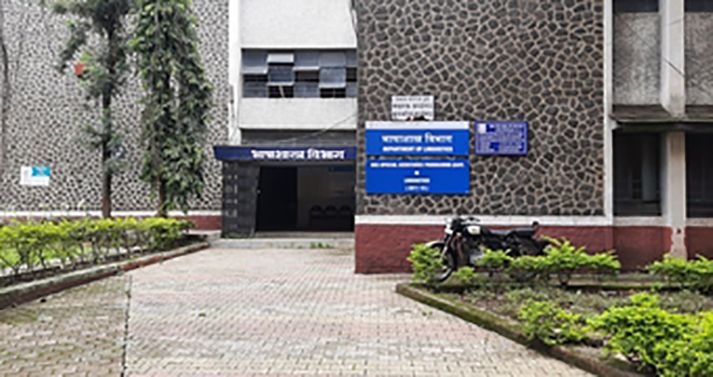Department of Linguistics
About Department :Linguistics

The Department of Linguistics, founded by the late Professor S.M. Katre in 1939, is the oldest Department of modern Linguistics in India. From 1939 to 1956 the Department functioned as a Research Department known as the Department of Indo-European Linguistics, awarding Ph.D. Degrees and conducting research projects. M.A. Linguistics programme began in 1958. The Department has played a pioneering role in developing modern Linguistics in India. In 2008 the Department celebrated the Golden Jubilee of the first Post-Graduation programme in Linguistics in India. In 2011 the Department was selected by the UGC for the award of the Special Assistance Programme (SAP).
Post-independence, the development of Indian languages and dialects of the four language families became an urgent need since these were expected to take on the responsibility of serving as vehicles of both literary and scientific works and in due course of time to function as media of education and instruction. The state of linguistic studies in Indian universities at the time was not adequate to handle such problems and the need to expand, modernize and reorient language studies became a pressing need. Under the circumstances, a lead was taken by the Poona University by calling a conference in 1953 to discuss these issues in addition to the urgent problem of a common medium in Indian universities. This was followed by another conference called by the Deccan College for developing linguistic studies in the universities with the specific purpose of applying their findings to problems of cross-cultural communication. As a consequence of these two conferences, the Deccan College started a large-scale language project with a magnificent grant made by the Rockefeller Foundation of New York over a period of six years (1954- 1960).
Under the able guidance of Prof. Sumitra Mangesh Katre, Deccan College, Pune spearheaded in the 1960s the firm establishment of the modern discipline of Linguistics in India. To popularise this discipline, summer, autumn and winter schools of six weeks duration were conducted in Deccan College and in various other parts of the country starting from 1954.
Building on the popularity of this new discipline in India, a Post-Graduate Diploma in Linguistics was started at this Institute in 1956. Prominent scholars in Indian linguistics today were among the participants of the Diploma course. The year 1958 saw the beginning of a formal Post-Graduate degree course in Linguistics at the Deccan College, the first in India of this kind in this field. In the years that have followed, alumni of this Institute have gone forth and established departments of Linguistics in various Institutions and Universities in the country. After the Rockefeller funding came to an end, the UGC took over the responsibility of continuing the development by granting the first Centre of Advanced Study in Linguistics in 1963 and this status continued till 1973.
Since 2011, the UGC-SAP has given a huge fillip to research activities in the Department. Faculty and students in the department have set up individual projects on the theme of language contact (especially across language families) including the following contact situations: Marathi-Kannada, Marathi-Telugu, Marathi-Kolami, Marathi-Nahali, Gondi-Hindi, Galo-Hindi, Khasi-English, Marathi-Hindi in Nagpur, Konkani-Marathi and Arunachali Hindi. The Department has also organised national and international conferences/seminars on the same theme in recent years.
Heads of Department
| No. | Name | Period |
| 1. | S. M. Katre | 1939-1959 |
| 2. | A. M. Ghatage | 1959-1969 |
| 3. | N. G. Kalelkar | 1969-1973 |
| 4. | A. M. Ghatage | 1973-1978 |
| 5. | H. S. Biligiri | 1978-1980 |
| 6. | P. Bhaskararao | 1980-1995 |
| 7. | R. V. Dhongde | 1995-1996 |
| 8. | S. R. Sharma | 1996-2001 |
| 9. | R. V. Dhongde | 2001-2003 |
| 10. | S. R. Sharma | 2003-2005 |
| 11. | K. S. Nagaraja | 2005-2009 |
| 12. | Sonal Kulkarni-Joshi | 2009-2015 |
| 13. | Shailendra Mohan | 2015-2018 |
| 14. | Prof. Sonal Kulkarni-Joshi | 2019- |
